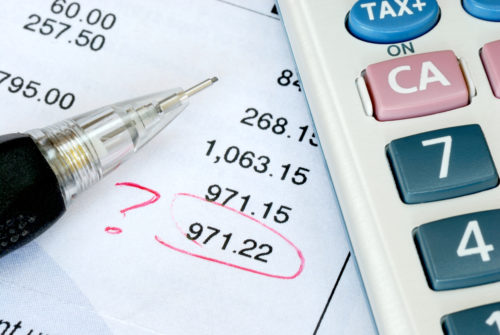Have you ever checked your monthly statement and found suspicious charges made to your credit card? Almost everyone has experienced this scenario at least once. It’s no reason to panic, but you do need to act quickly. In this article, we’ll explain your rights and how to dispute a charge on your credit card.
Table of Contents
The Fair Credit Billing Act
Thanks to the Fair Credit Billing Act (FCBA), you have protection for your credit card purchases. This federal law protects you against inaccurate or unfair credit billing and credit card practices. If you made a purchase that you never received, or you received it and it was damaged, defective, or of poor-quality, the FCBA gives you the right to dispute the charge.
How to Dispute a Credit Card Charge
Disputing a charge on your credit card is fairly easy, but there are a few things you need to know. This is the process and a few tips to help win the dispute:
Spotting Unauthorized or Incorrect Charges Early
First, you’ll always want to keep a close eye on your credit card statements for unauthorized charges. Unauthorized charges can be anything from a double charge, to an incorrect charge, to credit card theft. Sometimes it can even be a simple error.
In cases where a merchant accidentally charged you twice for a purchase you only made once, or entered an incorrect amount, you’ll want to try reaching out to the merchant first. Simply contact them with a copy of your receipt and your credit card statement. Make sure to block out any sensitive account information when showing a copy of your statement. In most cases, the mistake was not on purpose, and politely asking the merchant to reverse or correct the charge can be easily accomplished.
If the merchant refuses, or in circumstances where the charge was fraudulent or you would like to dispute the charge for bad service, you will need to contact your card issuer. The Fair Credit Billing Act states that you should report an unauthorized charge within 60 days of the date the statement was mailed or available to you. Waiting longer could increase your chances of liability for the charge.
Filing a Complaint
When you know the charge on your credit card was unauthorized and you wish to dispute it, contact your card issuer immediately. You can find their phone number on the back of your card, on your bank statement, or on the card issuer’s website.
Typically, the first thing that will happen is your card issuer will block any further transactions on your account and immediately issue you a new credit card with new account information. That way, anyone that has your account information cannot make any further purchases.
You may have to write a letter detailing your dispute. Be sure to note when you contacted your card issuer to notify them of the dispute, and provide any details from that initial contact. If you already contacted the merchant about the charge, you should add this information to your letter, too.
Once your dispute is approved, the unauthorized charge will be erased from your account. You will not have to pay for the charge, and your card issuer cannot charge any fees or interest on the disputed charge. If the claim is denied, your card issuer will explain why they denied the claim. In most cases, the dispute will be resolved within a few weeks.
How to Dispute a Credit Card Charge for Bad Service
You may be wondering if this process applies to charges for items or services that left you unsatisfied. Disputes of quality are not billing errors, so disputing a credit card charge with your card issuer or bank will not apply.
However, the FCBA still provides you some protection in this case. To dispute a charge for bad service, the charge must be a total of $50 or more, the purchase must have been made in your home state or within 100 miles of your current billing address, and you must prove that you’ve contacted the merchant first.
If you are unable to resolve the service issue with the merchant, you may file a complaint with the FCBA or pursue other legal action under state law. In this case, you may want to contact an attorney for advice.
Tips For Winning a Credit Card Dispute
Here are a few tips to keep in mind when disputing a credit card charge:
- Spotting the unauthorized charge on your credit card statement as quickly as possible is essential to your dispute. Always keep a close eye on your statements and hold onto important receipts.
- Before disputing a credit card charge, make sure the purchase wasn’t made by an authorized user on your account.
- Report all unauthorized charges no matter the amount, even a $1 charge could be a credit card scam that could result in future funds being drained from your account.
- Remember that politeness goes a long way. Whether you’re dealing with a store merchant, a customer service employee, or banker, they will be much more likely to work with you and resolve your dispute quickly when interactions are pleasant.
- It is also important to maintain your other credit card payments during the investigation and dispute process. While the Fair Credit Billing Act protects you from negative credit reporting for the disputed charge, missing credit card payments can affect your credit score.
- Finally, be diligent about checking in on the status of your dispute. Make sure you get confirmation that your card issuer or bank received your claim, and ask for status updates regularly until the dispute is resolved.
Disputing a credit card charge is fairly simple, but you’ll want to ensure you’ve done your due diligence before pursuing legal action. We hope this information has helped you resolve your dispute.
Image Source: https://depositphotos.com/





